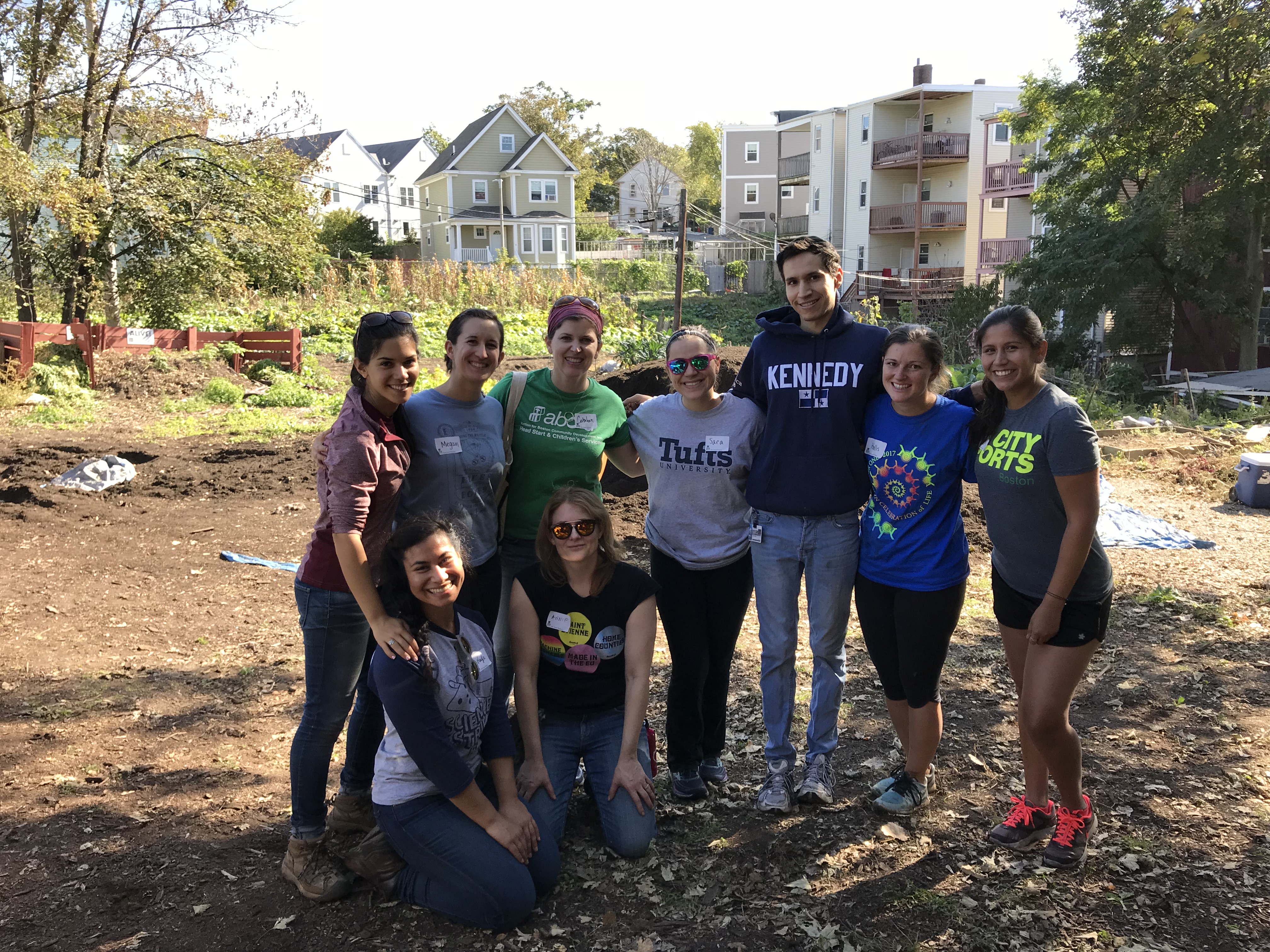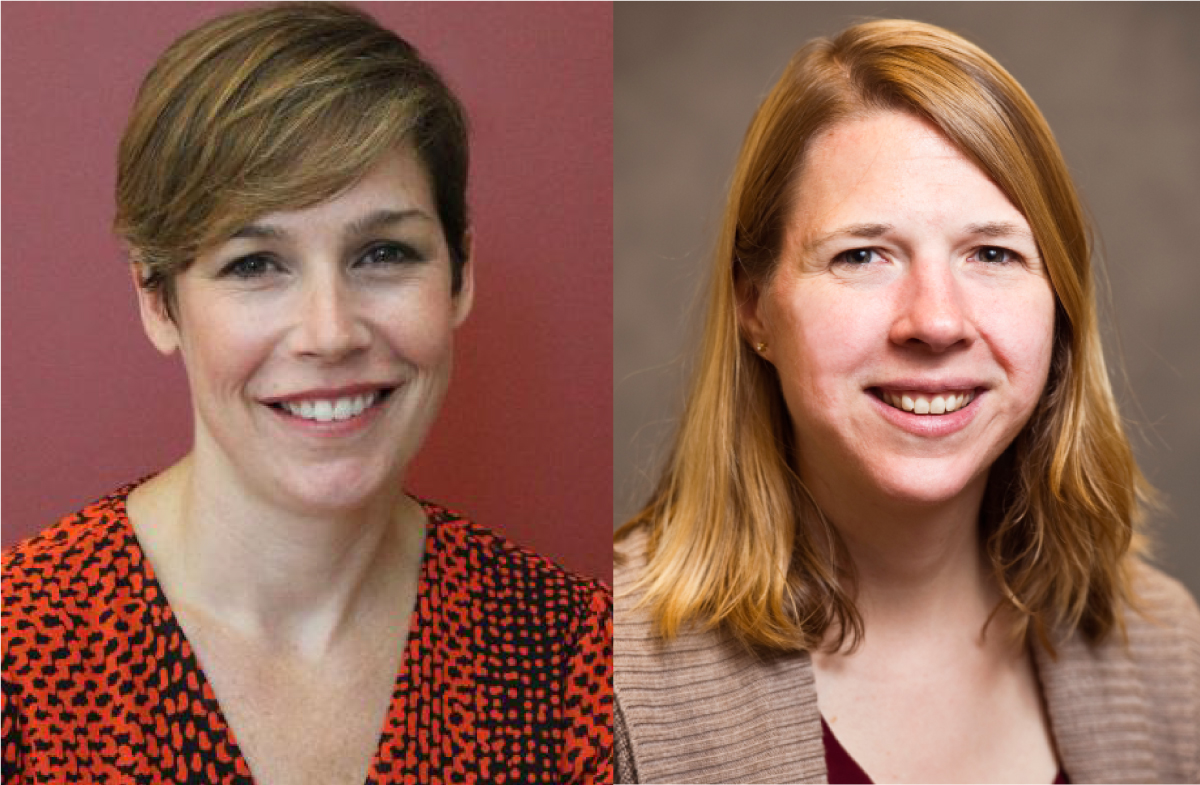We're always thinking about new ways to enrich our academic offerings and set the pace for innovation in the global food system. From new courses and programs in entrepreneurship scholarship to the beginnings of a Tufts Food Lab, we're creating new pathways to a better world.
Tufts Food Lab
Inspired by The Bread Lab at the Washington State University, and led by Professor Tim Griffin and consultant Wendy Hebb, the Tufts Food Lab is working to answer two central questions:
1. How can we combine the study of agriculture, the culinary arts, and nutrition science into one interactive discipline?
2. How can we cultivate intention within the agricultural system to improve nutrition, sustainability, regional economies, and participation among diverse stakeholders?
The suite of activities now underway include the creation of internships in the experimental bakery at Blue Hill Restaurant, work with the HNRCA on grain nutrients, and travel to the Bread Lab at Washington State University.
Social Justice, Inclusion, and Diversity
The Social Justice, Inclusion, and Diversity Committee (SJID) was established in November 2016 based on advocacy efforts from students. Over the course of the past year, the SJID has participated in a number of activities both within and outside of the Tufts Community. These included a visit to the Museum of African American History, a volunteer day at the Food Project, and participation in Tufts' search for a new Chief Diversity Officer.
In July 2017, the Committee held a one-day retreat to establish a set of goals. These goals are anticipated to be completed within two defined timeframes: medium (2-4 years) and long-term (5-10 years). Given the fairly recent creation of the committee, many of the goals were based on laying groundwork for new initiatives related to social justice, inclusion, diversity, and equity. The goals were then grouped together and working subcommittees were formed to cover goals related to Faculty, Education, Staff, Training, and Communications.
Over the year the subcommittees have engaged in the following activities:
Faculty
This year, the Faculty subcommittee has worked on two major initiatives. They have launched an effort to create a faculty hiring manual that infuses best practices for an inclusive hiring process. After obtaining support from School leadership to develop the document, the subcommittee has begun researching best practices from other institutions and are currently in the beginning stages of drafting the manual. The subcommittee also began working with the Training Subcommittee to organize a training for faculty on developing a personalized syllabus diversity statement.
Education
The Education subcommittee is working to determine ways to build in more strategies for actively recruiting typically underrepresented groups in the Nutrition field. The admissions department speaks with many prospective applicants from these groups but finds that they do not apply. The education subcommittee is seeking to understand why those they meet with do not apply via in-depth interviews that they will conduct in 2019.
Staff
The Staff subcommittee has been working on a document to provide Friedman hiring managers and anyone engaged in the hiring process with guidance on how to create a diverse pool of candidates. This guidance is based on the definitions of diversity at the University level and as defined by the Friedman SJID Committee. They expect to complete the first draft of this document before the end of the 2018 calendar year and submit it to the SJID committee for review.
Training
The Training subcommittee facilitated participation from students, Faculty, and staff in the 2018 Food Solutions New England (FSNE) 21-Day Racial Equity Habit Building Challenge, which ran from April 2-22, 2018. While it is not possible to gauge exact engagement and interest level in the overall event, 41 of the 1,010 participants specifically identified being a member of the Friedman School Community. The social media stats on our school account alone show that every message sent out with the hashtag #FSNEEquityChallenge received retweets, likes, or both. This makes this hashtag the best consistently performing hashtag Friedman used this year.
Related work that the School highlighted during the challenge included sharing Friedman School alumna Alison Brown, PhD’s essay on Medium about disaggregation of the Black racial category in the US 2020 Census, an interview with Dr. Ashanté Reese on intersectional approaches to understanding food access inequality, and a blog post from FSNE on dismantling white supremacy in the US food system. In addition, the School held in-person lunchtime chats, which were successful and well-attended each week of the challenge.
Additionally, the Training subcommittee sent a faculty survey with the objective of learning more about the practices that faculty members already use to foster an inclusive classroom environment; and identifying ways that the Friedman School can provide support and training to faculty to enhance further growth in fostering inclusivity in the curriculum and classroom. The results of the survey will inform trainings and activities offered in the coming school year.
Communications
The communications subcommittee worked on photography and video guidelines for students, faculty, and staff when taking footage in the field and around the school. Ensuring that stories are documented is incredibly important, but making sure that the stories are told respectfully and with dignity is of equal importance. New guidelines should be available to the Friedman School community in the Spring of 2019. This year the subcommittee also supported outreach and feedback efforts to create a more diverse Friedman School Speaker Series. Alumni, students, staff, and faculty have all been very engaged in being part of the communications outreach.
SJID Committee Members
Subcommittees
Subcommittee Members
Times Per Year Each Group Meets

New Academic Initiatives & Programs
This year saw the development of our Nutrition Data Science, with a mission to support school-wide efforts in data management and analysis activities. The suite of activities supporting this new focus include providing opportunities for professional development and training in epidemiology, advanced data analytics techniques, management and leadership skills, and scientific communication. Corresponding with these efforts, a new course in Data Visualization for Effective Communication started this past Spring, led by Friedman Professor Elena Naumova and Senior Lecturer Corby Kummer. Data Science outreach initiatives this year included a collaboration with Bentley and Bryant Universities on the Analytics without Borders Initiative and a partnership with Tufts Data Lab in Medford.
In collaboration with the Tufts Institute for the Environment, this year we unveiled a new program: the Master of Science in Sustainable Water Management. Professors Tim Griffin, Dan Maxwell, and Elena Naumova are teaching core classes as part of the program

Research Seed Funding
This year we developed the new Food for Thought Seed Grant Program to encourage the essential first steps in interdisciplinary collaboration by supporting Friedman School faculty pilot projects. Our goal is to support research that contributes to the school’s Strategic Plan and facilitate larger follow-on sponsored research funding.
The Program focuses on four intentional areas: Novel technologies and data science; science and practice of scale; interdisciplinary, collaborative, and translational science; and research involving underserved populations.
We’ve announced two seed grant recipients so far: Associate Professor Sara Folta (A Qualitative Assessment of Scarcity on Food Choice) and Research Assistant Professor Erin Hennessy (Discovering the Antecedents of Child Feeding).
Dr. Hennessy and colleagues are conducting a qualitative study involving pregnant women in their 3rd trimester and mothers of children 0-24 months to understand the feeding goals and values of women during the first 1,000 days of life and how these feeding goals and values evolve from pregnancy through the second year of life and in response to contextual factors such as food insecurity and parenting stress. This research will help inform the design of effective interventions to support parents and reduce disparities in obesity early in life.
Drs. Sara Folta and Norbert Wilson are conducting a study to understand food choice among people living in poverty, with a focus on the behavioral economic concept of “scarcity." They are using a novel method that asks participants to take photos as they are making food choices, and the photos are then discussed in follow-up qualitative interviews. The proposed research is a first step toward filling a gap on understanding how behavioral biases such as scarcity lead to poor food choices.

New Divisions and Directions
In an effort to provide a clearer organizational structure and increased avenues for faculty development, this year we standardized a structure within our faculty administration that consist of 6 discrete divisions and centers.
These new divisions align closely with their associated academic programs, sharing both research aims and educational goals. Core faculty are listed on the Friedman site according to their designated division(s).
This new initiative is an important part of our School's strategic plan to help create and enable faculty leaders. The divisions and the center have experienced leadership at the helm and a combined passion to positively impact the global food system.
Nutrition Interventions, Communication, and Behavior Change
Led by Division Chair
Christina Economos
Students Step Up for Policy Issues
The Friedman Food Policy Action Council (FFPAC) is a student run organization that works to advance evidence-based nutrition and agricultural policies in support of public and environmental health. They drive this mission forward by equipping students with the skills and relationships necessary to impact policy through advocacy.
Founded this year, the FFPAC group meets bimonthly. They also hosted bimonthly Policy Chats in partnership with Professor Jerry Mande this past spring to discuss current food and nutrition policy issues.
The objectives of the group are for its members to gain experience writing and publishing op-eds, calling and meeting with legislatures, and working with other advocacy organization across Massachusetts and the country. We commend the FFPAC for getting involved in this important work!

